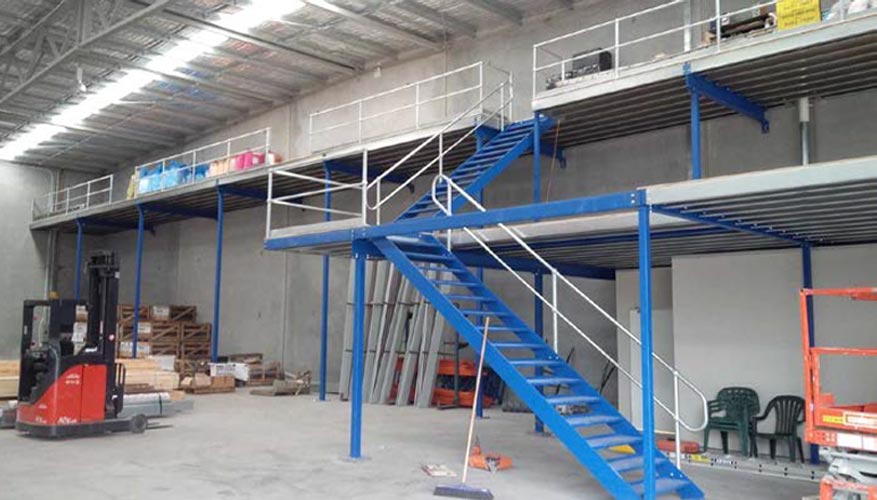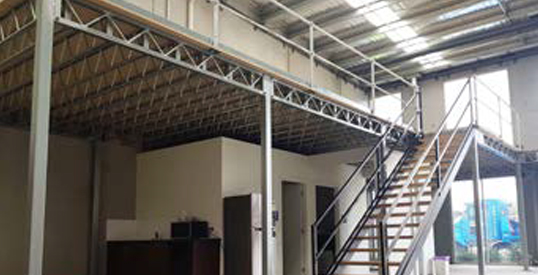The Role of Prefabricated Factory Sheds in Industrial Development in Uganda and South Sudan

Industrial development plays a vital role in economic growth, job creation, and poverty alleviation, particularly in developing countries like Uganda and South Sudan. As these nations seek to expand their industrial sectors, one of the key challenges is the high cost and time required for traditional construction. Prefabricated factory sheds, built using modern materials and techniques, offer a solution that can help accelerate industrial growth by providing cost-effective, flexible, and durable structures.
In this article, we will explore how prefabricated steel factory sheds are aiding the industrial development of Uganda and South Sudan, focusing on key industries such as manufacturing, agriculture, mining, and logistics. We will also examine how these prefab structures are transforming industrial landscapes by meeting the demand for fast, scalable, and durable building solutions.

Why Prefabricated Factory Sheds?
Prefabricated factory sheds are structures manufactured off-site in a controlled environment and assembled on-site. They are typically made from steel and other durable materials, offering several advantages over traditional construction methods. These advantages include faster construction times, lower costs, flexibility in design, and enhanced durability. In regions like Uganda and South Sudan, where industrial growth is essential but often hindered by infrastructure challenges, prefabricated sheds are an ideal solution.
1. Prefabricated Sheds for Manufacturing Industry
The manufacturing sector in Uganda and South Sudan is one of the key drivers of economic development. However, the high costs of setting up factories, coupled with the lengthy construction timelines associated with conventional building methods, have slowed growth in this area. Prefabricated steel factory sheds offer a solution by providing ready-made, customizable structures that can be erected in a fraction of the time.
Prefabricated Sheds for Food Processing and Packaging Industry
In Uganda, the food processing industry is growing rapidly, with businesses focusing on processing coffee, tea, dairy products, and cereals. Prefabricated factory sheds are ideal for food processing plants because they can be customized with specific ventilation, insulation, and hygienic surfaces required by the industry. The fast construction times mean that companies can establish processing plants quickly to meet growing domestic and export demands.
In South Sudan, which is working to rebuild its economy after years of conflict, the food processing industry is a critical area for development. Prefabricated sheds provide a cost-effective and rapid solution to set up new processing plants, helping to improve food security and increase employment opportunities.
Prefabricated Textile and Garment Industry Sheds
The textile and garment industry in Uganda is another area that benefits from prefabricated sheds. This sector is growing as the country seeks to leverage its cotton production. Prefabricated factory sheds offer spacious, open-plan designs that are perfect for garment production lines. These structures can be expanded or modified as the business grows, providing flexibility for future scaling.
2. Prefab Sheds for Agriculture and Agro-Processing
Agriculture is the backbone of the economies of both Uganda and South Sudan, employing the majority of the population. As these countries look to modernize their agricultural sectors and add value through agro-processing, prefabricated factory sheds are playing a crucial role in supporting this transformation.
Prefabricated Steel Storage and Warehousing for Crops
One of the main challenges in agriculture is the lack of proper storage facilities. Poor storage conditions often lead to post-harvest losses, particularly for crops like maize, beans, and grains. Prefabricated factory sheds can be used to build modern warehouses for storing agricultural products in a controlled environment. These sheds are equipped with ventilation and temperature control systems to prevent spoilage, ensuring that farmers can store their products for longer periods and sell them at better prices.
Prefabricated Steel Processing Facilities
As Uganda and South Sudan aim to move up the value chain by processing agricultural products, prefab factory sheds provide the perfect solution for building processing plants. These sheds can house machinery for milling, drying, sorting, and packaging agricultural products. In Uganda, industries such as coffee processing, sugarcane refining, and fruit juice production benefit from the rapid construction and low cost of prefabricated sheds.
Livestock and Poultry Farming Steel Sheds
Prefabricated sheds are also widely used in the livestock and poultry sectors. In Uganda, which has a growing poultry industry, prefab sheds provide farmers with durable and scalable housing solutions for their flocks. These sheds can be customized with proper ventilation, heating, and cooling systems to create ideal conditions for poultry and livestock, helping to increase productivity and reduce losses due to disease or weather conditions.
3. Mining and Natural Resources
Both Uganda and South Sudan are rich in natural resources, with industries like mining playing a crucial role in their economic development. Prefabricated factory sheds are increasingly being used in mining operations to house equipment, workers, and storage facilities.
Housing Mining Equipment
Mining operations often require large, durable structures to store heavy machinery and equipment. Prefabricated steel sheds offer the necessary strength and size to house mining equipment, from drills and crushers to transport vehicles. These sheds can be constructed quickly, minimizing downtime and allowing mining operations to begin sooner.
Worker Housing and Break Areas
In remote mining areas, setting up infrastructure for workers is often a challenge. Prefabricated sheds provide a fast and efficient way to create housing, dining areas, and break rooms for miners. These structures can be transported and assembled on-site, making them ideal for temporary or mobile mining camps.
4. Oil and Gas Industry
South Sudan, in particular, has significant oil reserves, and the oil industry is a major contributor to the country’s economy. Prefabricated factory sheds are essential for oil companies, providing storage for oil extraction equipment, pipelines, and machinery.
Prefabricated Steel Storage of Oil and Gas Equipment
The oil and gas industry requires extensive storage facilities for drilling equipment, pipelines, and other machinery. Prefabricated sheds are ideal for this purpose, offering customizable designs that can be tailored to specific needs. These structures are durable enough to withstand the harsh conditions often found in oil fields and can be expanded as needed.
Prefab Modular Office and Control Centers
Oil companies often need on-site offices or control centers to manage operations. Prefabricated sheds can be quickly constructed and customized to serve as modular offices or control rooms, complete with insulation, electrical wiring, and communication systems. This flexibility allows oil companies to set up their operations more efficiently.
5. Logistics and Distribution
As industrial sectors in Uganda and South Sudan grow, the need for efficient logistics and distribution networks becomes increasingly important. Prefabricated factory sheds are being used to build warehouses and distribution centers that support the transportation of goods both within the countries and for export.
Prefabricated Steel Warehousing for Goods
The demand for warehousing facilities is rising in Uganda, particularly in urban centers like Kampala. Prefabricated sheds provide a cost-effective way to build large-scale warehouses for storing manufactured goods, agricultural products, and imported materials. These sheds can be designed with high ceilings and wide spans, allowing for efficient use of space and easy access for forklifts and transport vehicles.
In South Sudan, where infrastructure is still developing, prefab sheds offer a solution for creating temporary or permanent warehouses near key transport hubs, such as airports and seaports.
Prefab Distribution Centers
For companies involved in the distribution of goods, prefabricated factory sheds are ideal for setting up distribution centers quickly. These sheds can be customized with loading docks, shelving systems, and office spaces, making them perfect for logistics companies looking to expand their operations. As trade increases between Uganda, South Sudan, and neighboring countries, the demand for such facilities will continue to grow.
6. Construction and Infrastructure Development
Both Uganda and South Sudan are experiencing a construction boom, with numerous infrastructure projects underway, including roads, bridges, and buildings. Prefabricated factory sheds play a key role in supporting this growth by providing storage and workshop spaces for construction companies.
Construction Material Storage
Construction Material Storage
The storage of construction materials like cement, steel, and lumber requires secure, weather-resistant buildings. Prefabricated steel sheds are ideal for this purpose, offering protection from the elements while providing enough space to store large quantities of materials. This ensures that construction companies can keep their supplies safe and accessible on-site.
Workshops and Fabrication Units
Construction companies also use prefab factory sheds as workshops for fabricating steel beams, concrete blocks, and other building components. These sheds can be customized to include specific machinery and workspaces, allowing companies to streamline their fabrication processes and reduce the time it takes to complete projects.
Conclusion
Prefabricated factory sheds are playing an essential role in the industrial development of Uganda and South Sudan. These versatile, durable structures offer cost-effective solutions for a wide range of industries, including manufacturing, agriculture, mining, oil and gas, logistics, and construction. By providing faster construction times, lower costs, and the flexibility to expand as needed, prefab sheds are helping businesses in these regions grow and thrive.
As Uganda and South Sudan continue to develop their industrial sectors, the demand for prefab factory sheds will only increase. These structures are not just a temporary solution but a cornerstone of sustainable industrial growth, providing the infrastructure needed to support the economic ambitions of both nations.
FAQs About Prefabricated Factory Sheds
1. What are prefabricated factory sheds?
2. Why are prefab sheds important for industrial development in Uganda and South Sudan?
3. What industries benefit from prefab sheds in Uganda and South Sudan?
4. How do prefab sheds support agriculture in Uganda and South Sudan?
5. How do prefab sheds contribute to the logistics and distribution sector?
- Ready-to-Assemble Steel Structure to Sudan for the United Nations – Case Study
- Which Steel Cable Tray Type is Best? A Look at Perforated, Ladder, Wire Mesh & Flexible Trays
- The Impact of Temperature Variations on Cold Storage Warehouses in Different Cities of Uganda
- The Impact of Factory Shed Layout on Workflow Efficiency
- Uganda’s Rising Demand for Cold Storage Builders in the Logistics Industry
